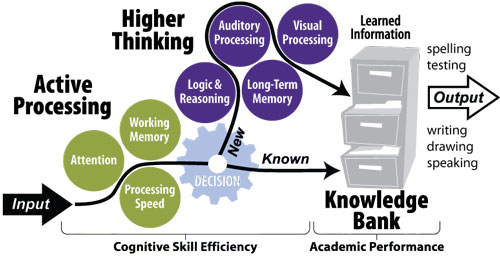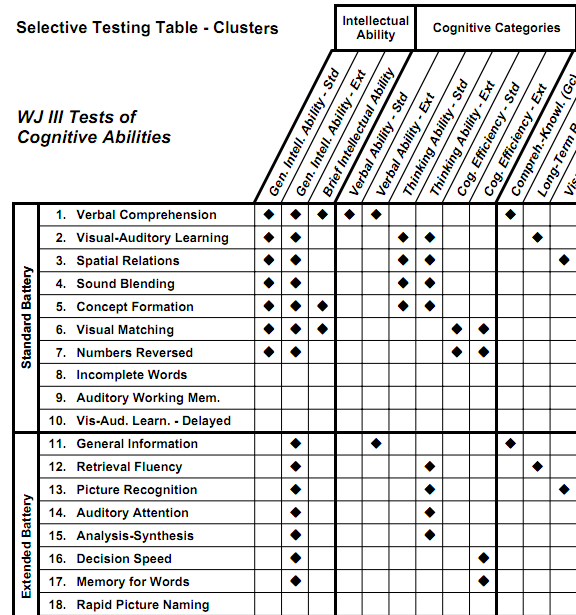Learning Self Control Early Drives Success
 Developing Your Next Brain, or making an effort to improve brain function and reach peak cognitive performance takes a lot of work. One reason we do it is to live a more successful life. While life success has many facets most agree that a cornerstone is self control. Being able to shape our own thinking and emotional responses, manage impulses, avoid self defeating assumptions and persistence in the face of obstacles is critical to living the good life. This has little to do with IQ and a lot to do with your ability to manage yourself.
Developing Your Next Brain, or making an effort to improve brain function and reach peak cognitive performance takes a lot of work. One reason we do it is to live a more successful life. While life success has many facets most agree that a cornerstone is self control. Being able to shape our own thinking and emotional responses, manage impulses, avoid self defeating assumptions and persistence in the face of obstacles is critical to living the good life. This has little to do with IQ and a lot to do with your ability to manage yourself.
There is considerable evidence to support this claim. Take for example, the recent research reported in Science News that suggests:
Good self management skills as early as age three predict health and wealth in adulthood.
The findings are dramatic:
“Low levels of conscientiousness, perseverance and other elements of self-control in youngsters as young as age 3 herald high rates of physical health problems, substance abuse, financial woes, criminal arrests and single parenthood by age 32, says an international team led by psychologists Terrie Moffitt and Avshalom Caspi of Duke University in Durham, N.C.”
How can children develop higher levels of self-control? Research from another group reported in the article claimed behavioral rewards, developing coping skills and role playing simulation using videotape are key. None of this is rocket science. For example, coping skills can include blowing bubbles and making funny faces. The rub is to learn to do these things rather than getting angry or stressed and yelling at others or giving up on a goal.
Very interested to hear from readers that have experience with specific techniques for improving self control and self management skills in children.
Categories: Child, Executive Function, Manage Emotions, Other, Training Tags: EQ, experiential learning
Speaking Two Languages Acts as Mental Gym
 New research from Penn State, Juggling Languages Can Build Better Brains, overturns previous thinking about the impact speaking more than one language on brain function. Rather than creating confusion, it turns out that being bilingual or learning to speak a second language can improve your ability to multi-task. Specifically:
New research from Penn State, Juggling Languages Can Build Better Brains, overturns previous thinking about the impact speaking more than one language on brain function. Rather than creating confusion, it turns out that being bilingual or learning to speak a second language can improve your ability to multi-task. Specifically:
“Recent research indicates that bilingual speakers can outperform monolinguals–people who speak only one language–in certain mental abilities, such as editing out irrelevant information and focusing on important information, said Judith Kroll, Distinguished Professor of Psychology, Penn State. These skills make bilinguals better at prioritizing tasks and working on multiple projects at one time.”
Learning a second language requires considerable time and energy. You also need to be in a situation where you can use both languages regularly. Despite these difficulties techniques proven to build your mental focus are rare. Improved mental focus pays a lifetime of benefits.
Interested to hear from bi or multi lingual readers willing to share their impressions on how additional languages are impeding or accelerating their brain function and cognitive performance.
Categories: Mental Focus, Problem Solving, Training Tags:
Evidence Mounts – Caffeine & Sugar Boost Cognitive Performance
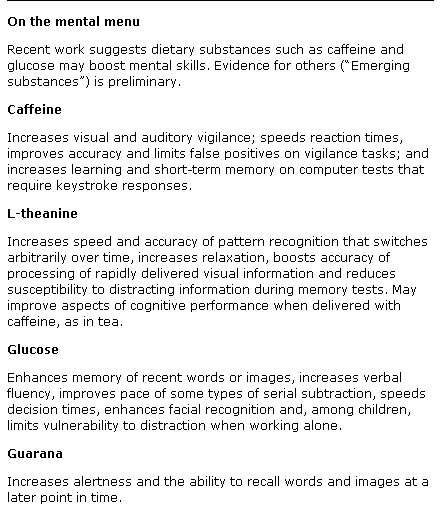 Science News just published an easy to read review article on what the latest scientific studies reveal about nutritional supplements and brain function. The evidence that certain supplements are brain boosters is really mounting. The “mental menu” shown to the right is taken directly from the article.
Science News just published an easy to read review article on what the latest scientific studies reveal about nutritional supplements and brain function. The evidence that certain supplements are brain boosters is really mounting. The “mental menu” shown to the right is taken directly from the article.
This means for example, a snack including caffeinated tea and a sugary treat should produce a short-lived but intense boost in mental energy and cognitive performance.
Categories: Diet, Executive Function, Memory and Learning, Mental Focus Tags:
Vastly Improve Mental Focus By Switching
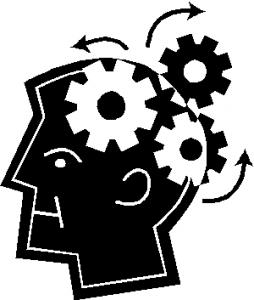 Prolonging mental focus is not about taking a rest break but momentarily switching to a task to get a jolt of mental energy or novelty.
Prolonging mental focus is not about taking a rest break but momentarily switching to a task to get a jolt of mental energy or novelty.
Staying focused on a specific task or topic can be difficult. Called vigilance or our ability to “keep watch” it is vitally important for top mental performance in any field. As such we will cover scientific studies on how to improve mental focus and vigilance on the Next Brain Blog.
For example, new research from University of Illinois reported in the journal Cognition found that brief diversions from a task actually vastly improves your mental focus. While we all know you need to take breaks to stay fresh, this finding is different.
Test subjects in this study memorized four digits (four different numbers each less than 10) before taking on a different mental task for 50 minutes. Subjects were told to signal if they saw one of the digits flash on the computer screen they were working with. Some of the test subjects were shown digits during work on the 50-minute task (called the switch group) others were not. There was also a control group that knew nothing about the digits but saw them during the task. Here is what they found:
“As expected, most participants’ performance declined significantly over the course of the task. But critically, Lleras said, those in the switch group saw no drop in their performance over time”.
The brief diversions rather than hurting mental focus provides the novelty that we need to stay focus. We lose mental focus when nothing changes. We get bored and details fad into the background.
Note the switch group did not take a five minute break, they did not even take a 1 minute break. It is not about resting. It is about getting a small jolt of mental energy or novelty.
You can improve cognitive performance on long tasks by momentarily switching to tasks that provide a small dash of mental novelty. Interested to hear from readers that use this technique. What small diversions or switching tasks do you use?
Categories: Executive Function, Lifestyle, Mental Focus Tags: mental energy
How to Get Two More Years of Brain Health
 Here on the Next Brain Blog I have posted several times on the value of taking a walk for stimulating thinking, lowering stress and forestalling the effects of age-related cognitive decline. Even small amounts of walking can produce dramatic results. For example, check out the new research from University of Illinois at Urbana-Champaign that found:
Here on the Next Brain Blog I have posted several times on the value of taking a walk for stimulating thinking, lowering stress and forestalling the effects of age-related cognitive decline. Even small amounts of walking can produce dramatic results. For example, check out the new research from University of Illinois at Urbana-Champaign that found:
Walking 40 minutes three times a week on a regular basis increases the size of your hippocampus (area of brain where memories form) and effectively slows normal cognitive decline by two years in adults ages 50 to 80 years.
This is a powerful finding because normally our hippocampus decreases in volume 1-2% per year as we age.
Categories: Cognitive Decline, Lifestyle, Memory and Learning, Older Adult Tags: exercise
Low Dose Electrical Current Boosts Creativity
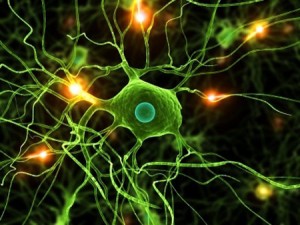 Our thinking and decision-making is strongly shaped by what has worked in the past. Success is compiled into rules and mental sets that make us more efficient but also blind us to innovative alternatives. If we could safely disrupt the applications of mental sets at the right time we might enhance our creativity. That idea was recently tested using transcranial direct current stimulation (tDCS) by researchers at the Center for the Mind.
Our thinking and decision-making is strongly shaped by what has worked in the past. Success is compiled into rules and mental sets that make us more efficient but also blind us to innovative alternatives. If we could safely disrupt the applications of mental sets at the right time we might enhance our creativity. That idea was recently tested using transcranial direct current stimulation (tDCS) by researchers at the Center for the Mind.
The experiment involved 60 subjects that were given a creative problem to solve. Some received a small electrical current applied to their brain in a region thought to hold mental sets that guide our problem solving. The results were dramatic:
“Only 20% of participants solved an insight problem with sham stimulation (control), whereas 3 times as many participants did so…”
A strong effect but one that needs to be repeated and further explained using brain scanning studies.
Only a tiny amount of electrical current is being used in tDCS. It has been the focus of other studies designed to enhance cognitive performance. We covered one from Oxford University in an earlier post on the Next Brain Blog.
I am interested to hear from readers about how low-level direct current is being used to stimulate cognitive performance.
Categories: Other, Problem Solving Tags: cognitive bias, experiential learning, tDCS
Brain Training Lowers Car Crashes by 50%
 Systematic brain training using software to improve your cognitive performance is a relatively new technique. The software acts like a brain gym working your memory, visual cognition, speed of processing, numeracy, decision-making skills and the like to make them bigger and stronger. More than 10 vendors will sell you a package and program ranging in price from $20 to hundreds. We have covered most of them here on the Next Brain Blog.
Systematic brain training using software to improve your cognitive performance is a relatively new technique. The software acts like a brain gym working your memory, visual cognition, speed of processing, numeracy, decision-making skills and the like to make them bigger and stronger. More than 10 vendors will sell you a package and program ranging in price from $20 to hundreds. We have covered most of them here on the Next Brain Blog.
But does it work? And does it work better than solving crossword puzzles, playing video games or other mentally stimulating things we do for fun? There is compelling evidence that brain training software has impact it is just not clear how much.
So I am always on the lookout for new studies that look at the effectiveness of brain training software. For example, Posit Science recently publish a synopsis of two studies done in 2010. Note Posit Science sells brain training software but the studies were conducted by academic researchers in neuroscience and psychology. These are interesting because both studies show improvement in cognitive performance on tasks outside the training software. One even demonstrated a 50% reduction in at-fault car crashes over a six year period:
“This study looked at crash records for 908 older drivers who trained on a version of Posit Science’s Road Tour exercise six years earlier. Road Tour expands “useful field of view,” how much a person can take in with a single glance. Useful field of view is critical to safe driving: a wider field can help drivers spot dangers in their peripheral vision in time to react. The study authors found that training with the Road Tour technology (called “speed-of-processing training” in the study) cut a driver’s crash risk. In fact, they were responsible for about 50% fewer crashes than their untrained peers. Road Tour is available as part of both the InSight and DriveSharp brain fitness programs.”
This is an important result. It shows that brain training software can improve the cognitive performance of older adults enough to impact an important daily activity.
Interested to hear from readers that use brain training software. How does it improve your cognitive performance in daily life?
Categories: Decision Making, Older Adult, Perception, Software, Training Tags: brain training
LearningRx – A Brain Training Center Near You
A reader shared an experience they had with LearningRx a consumer center for brain training. They promise to improve your academic performance by providing coached training on a full range of cognitive skills (see diagram).
The process starts with a formal assessment using the Woodcock-Johnson assessment for cognitive abilities (partially shown below).
You are then matched with a coach and work 3-5 days per week for an hour a day for 3 months. They claim a 3.6 year improvement on the cognitive assessment and have some studies to back it up.
LearningRx has centers across the US and they want to open more using a franchise approach. Interested to hear from other readers that have used this service.
Categories: Child, Cognitive Development, College Student, Memory and Learning, Mental Focus, Perception, Training Tags: brain training
Can Specific Scents Boost Cognitive Performance?
 Scents and odors have a swift and powerful impact on our brains. They can trigger memories and moods and signal the intentions and feelings of others. But can specific scents be used to improve our brain function and cognitive performance?
Scents and odors have a swift and powerful impact on our brains. They can trigger memories and moods and signal the intentions and feelings of others. But can specific scents be used to improve our brain function and cognitive performance?
There are scientific studies that suggest the scent of vanilla, cinnamon, roses and peppermint impact attention, memory and mental energy.
For example, a recent study in the North American Journal of Psychology pointed out:
“Past research indicates the odors of peppermint and cinnamon (1) enhance motivation, performance, and alertness, (2) decrease fatigue, and (3) serve as central nervous system stimulants.”
I could not find many scientific studies. The impacts they measure are not large or sustained.
There are also some suggested uses of odor in brain training, especially in the approach called neurobics. For example, in the book Keeping Your Brain Alive, the authors suggest:
- Wake up and smell the vanilla: Release the smell of an extract (vanilla, citrus, peppermint or rosemary) just as you awake every morning for a week.
- The scent of music: Sniff specific odors while listening to a song to stimulate novel sensory associations in your brain.
Scent can be delivered from simple cotton balls, plug-in devices, sprays or oils spread by small fans in low-cost electric aromatherapy diffusers. This makes it relatively easy to experiment with scents and cognitive performance. For example, scenting a room while studying, taking sniffs of specific scents just before or after a mental task and so on.
Interested to hear from readers that use scent to boost performance or as part of a brain training routine.
Categories: Memory and Learning, Mental Focus, Other Tags: scents
Need a Brain Boost? Crank Your Favorite Tunes
 Music stimulates our brains and can support peak cognitive performance in many ways. A new study at McGill University has revealed part of the reason – pleasurable music releases dopamine, a powerful neurotransmitter that the brain uses as a reward. The researchers also found that the stronger the emotional reaction to the music the more dopamine that is released. Some details:
Music stimulates our brains and can support peak cognitive performance in many ways. A new study at McGill University has revealed part of the reason – pleasurable music releases dopamine, a powerful neurotransmitter that the brain uses as a reward. The researchers also found that the stronger the emotional reaction to the music the more dopamine that is released. Some details:
The team at The Neuro measured dopamine release in response to music that elicited “chills”, changes in skin conductance, heart rate, breathing, and temperature that were correlated with pleasurability ratings of the music. ‘Chills’ or ‘musical frisson’ is a well established marker of peak emotional responses to music. A novel combination of PET and fMRI brain imaging techniques, revealed that dopamine release is greater for pleasurable versus neutral music, and that levels of release are correlated with the extent of emotional arousal and pleasurability ratings.
You can listen to the music they used in the study here.
Pleasurable music is a powerful and natural source of mental energy. Need a brain boost? Turn to your iPod.
Interested to hear from readers that use music in their brain training or physical workout routines.
Categories: Mental Focus, Music and Audio Tags: EQ


